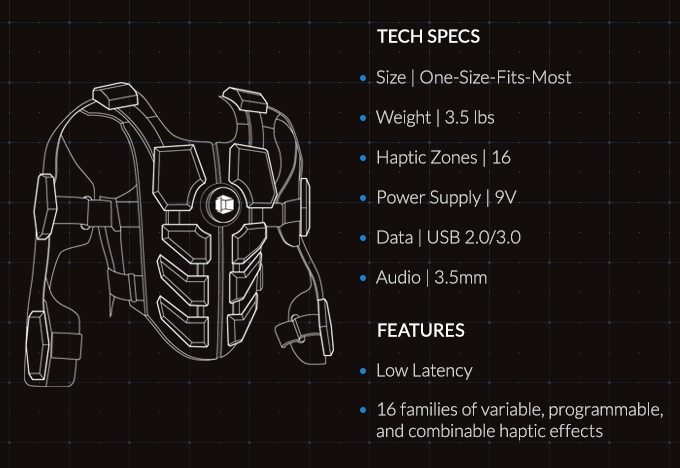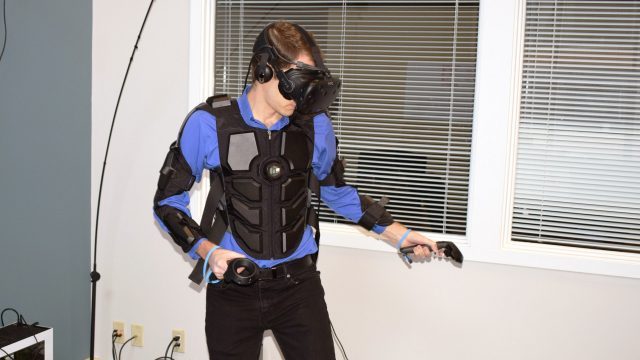Hardlight VR, the Seattle-based company that headed a successful Kickstarter campaign tasked with developing the eponymous haptic suit, is closing down this month due to lack of funding. Hardlight VR CEO and co-inventor Lucian Copeland issued a statement on the company’s Kickstarter page, saying there are “no options left to us but straightforward closure.”
The company’s Kickstarter, which successfully concluded in March 2017, garnered $147,574 from over 300 backers to bring the project to life. Although suffering several shipping delays due to manufacturing, Hardlight VR concluded last month that more than 95 percent of the suits ordered through the Kickstarter have been shipped.
The company’s wireless add-on, the result of a stretch goal, isn’t shipping however due to the lack of funds and a “crippling software issue outside of our control” that forced project creators to redesign the module late in its development. “What we’d expected to be a ~10k project turned out to be $18,451 in development costs alone, 104% of the project earnings without any production done,” Copeland explains, referring to the wireless module.


All of this comes with the revelation that Hardlight VR has been working full-time without pay for the last 9 months, searching for additional fundraising and acquisition offers.
Late last year, Road to VR’s Michael Glombicki visited Hardlight’s Seattle offices, where he tried the Mark III version of the haptic vest and even got a look at some of the upcoming research the company was doing, including a ‘butt-kicker’ solenoid for stronger impacts, and a thermoelectric plate that can cool and heat up on demand—all areas of research the company hoped would make it into successive versions of the vest.
The company has published a cost breakdown in their post mortem report, which concludes that manufacturing the Hardlight vest took over 138% of our actual raise amount after deducting credit card processing fees and Kickstarter’s percentage, and that an additional $59,013 required to fulfill orders was obtained from both traditionally fundraised capital and money from family, friends, and their own personal savings.
“While we still love the idea of haptics in VR, it’s clear that the VR industry is moving far slower than we expected, and we have been unable to make our product or our company sustainable,” Copeland says. “Thank you all for your help in making the Hardlight a reality, if a short lived one – I’m sorry we could not bring a more successful close to this project.”

